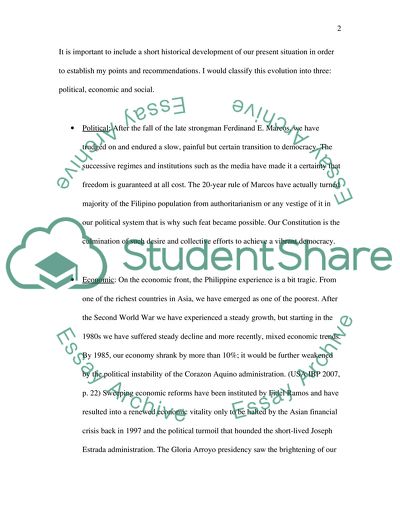Cite this document
(Key Issues That Holds the Philippines Back from Being Politically, Case Study, n.d.)
Key Issues That Holds the Philippines Back from Being Politically, Case Study. Retrieved from https://studentshare.org/social-science/1747124-intb3000
Key Issues That Holds the Philippines Back from Being Politically, Case Study. Retrieved from https://studentshare.org/social-science/1747124-intb3000
(Key Issues That Holds the Philippines Back from Being Politically, Case Study)
Key Issues That Holds the Philippines Back from Being Politically, Case Study. https://studentshare.org/social-science/1747124-intb3000.
Key Issues That Holds the Philippines Back from Being Politically, Case Study. https://studentshare.org/social-science/1747124-intb3000.
“Key Issues That Holds the Philippines Back from Being Politically, Case Study”, n.d. https://studentshare.org/social-science/1747124-intb3000.


